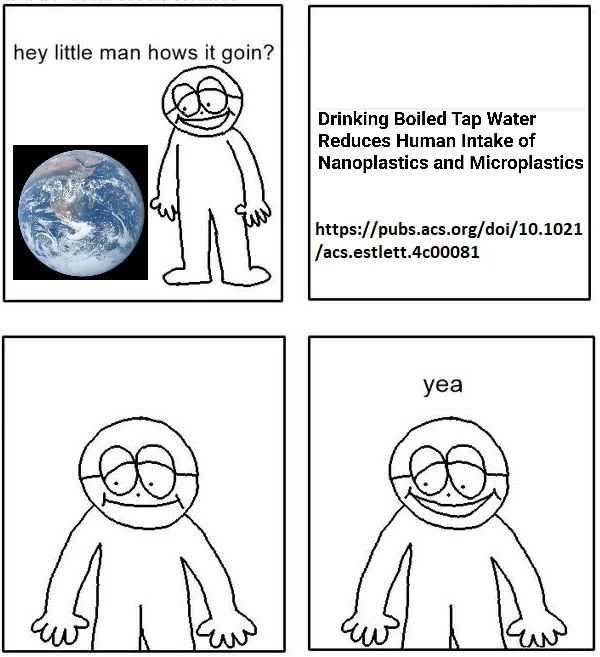this post was submitted on 06 Jun 2024
304 points (97.2% liked)
Science Memes
9992 readers
951 users here now
Welcome to c/science_memes @ Mander.xyz!
A place for majestic STEMLORD peacocking, as well as memes about the realities of working in a lab.

Rules
- Don't throw mud. Behave like an intellectual and remember the human.
- Keep it rooted (on topic).
- No spam.
- Infographics welcome, get schooled.
Sister Communities
Science and Research
Biology and Life Sciences
- [email protected]
- [email protected]
- [email protected]
- [email protected]
- [email protected]
- [email protected]
- [email protected]
- [email protected]
- [email protected]
- [email protected]
- [email protected]
- [email protected]
- [email protected]
- [email protected]
- [email protected]
- [email protected]
- [email protected]
- [email protected]
- [email protected]
- [email protected]
- [email protected]
- [email protected]
- [email protected]
- [email protected]
- !reptiles and [email protected]
Physical Sciences
- [email protected]
- [email protected]
- [email protected]
- [email protected]
- [email protected]
- [email protected]
- [email protected]
- [email protected]
- [email protected]
Humanities and Social Sciences
Practical and Applied Sciences
- !exercise-and [email protected]
- [email protected]
- !self [email protected]
- [email protected]
- [email protected]
- [email protected]
Memes
Miscellaneous
founded 2 years ago
MODERATORS
you are viewing a single comment's thread
view the rest of the comments
view the rest of the comments

The boiling method, and using ultrasonic devices so far sound promising:
https://projectboard.world/isef/project/eaev062t-harnessing-ultrasound-for-microplastic-filtration
Neither method is 100%, and sadly even if it were, there is no way to avoid ingesting microplastics. It's basically in all food sources at this point. Any animal, or plant have them in them, and those sources are going to be exposed to them; even rain has microplastics in it now.
I suppose the best way to actually avoid microplastics in the food chain would be growing plants in a greenhouse type environment (with dug up deep pre-plastic dirt?) only using properly treated water? For meats, I guess lab grown meat would be the way to avoid it, using plastic free (or less) sources for material?
I've actually been throwing out old spices in recent years, but maybe I should be saving them. Maybe they are the last vestiges of plastic free spices, and will be worth a fortune to paranoid rich people that want flavor?
Even pre-plastic dirt isn't safe